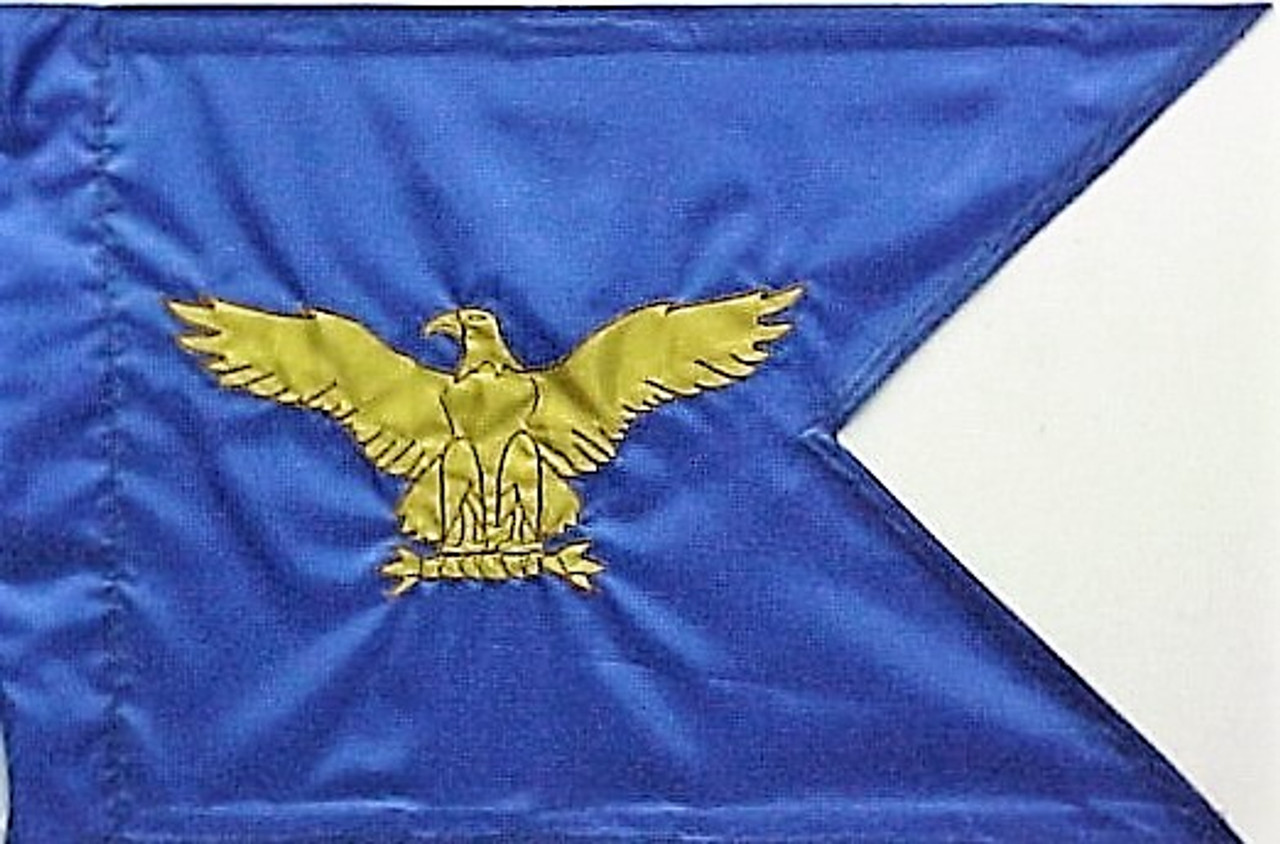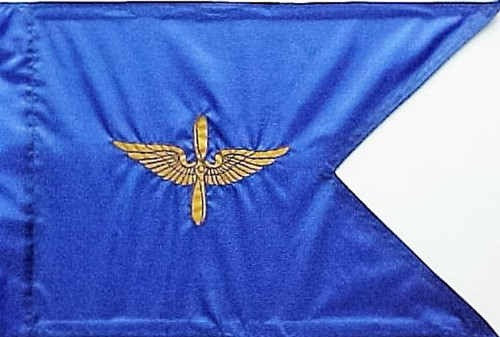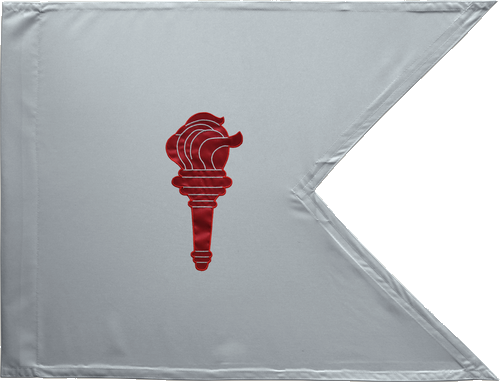Product Description
Air Force Guidon Flag 20" X 27 3/4" with Pole Sleeve. The guidons are sewn nylon that read correct on both sides and sewn to government specs. Please note what you would like above and below the eagle.
Our Nylon fabric goes by many names; Durawavez, Endura-Nylon, Perm-Nyl, or simply Nylon. Our Heavy-Duty Commercial Grade Dupont Solarmax material with Sunscreen. The best nylon on the market with embroidered stars (appliqued above 8’ x 12’) and sewn stripes! Perfect for flying outdoors, our 200-denier fabric allows for flyability in light breezes and the durable Lock Stitching extends the flags life longer than printed or even chain stitched flags. The quick drying of nylon allows for longer color retention! Typical life of our nylon flags is between 8-10 months before tattering and fading. Our sizes vary between 12” x 18” all the way to a 50’ x 80’!! All flags are Made in the USA!
- Heavy-weight Dupont nylon military-grade flag fabric specially treated to resist fading.
- Stars are appliqued—separate pieces of fabric—expertly sewn and finished for a superior professional look.
- Made in the U.S.A. Not only are our military flags assembled here, but all the materials that go into making them are domestic.
- Hems are sewn with a double row (4 rows on the fly end) of heavy, strong polyester thread tightly lock-stitched so they won’t unravel.
- Finished with our signature Pole Hem, sewn with a double row of stitching and a strong leather tab near the top end of the flag to secure it to the pole.
With the passing of the National Security Act of 1947, the United States Air Forces was separated as its own branch of the military. Initially formed as a part of the United States Army in August 1907, this is the second youngest branch of our military. Along with conducting independent air operations, the U.S. Air Force provides air support for land and naval forces and aids in the recovery of troops in the field. The service operates more than 5,369 military aircrafts, 406 ICBMs, and 170 military satellites. It takes around 325,000 active duty airmen to monitor all this equipment. The stated mission of the USAF today is to “fly, fight, and win…in air, space, and cyberspace.” The US code defines the purpose of the USAF as:
- To preserve the peace and security, and provide for the defense, of the United States, the Territories, Commonwealths, and possessions, and any areas occupied by the United States;
- To support national policy;
- To implement national objectives;
- To overcome any nations responsible for aggressive acts that imperil the peace and security of the United States.
The Korean War ensued 3 years after the USAF became its own independent branch. On June 27th, the battle for air supremacy began allowing the Air Force to prove its worth. The Battle of Suwon Airfield would be where the battle for the sky took place, pitting the USAF F-82 Twin Mustang and F-80C Shooting Star against the North Korean Lavochkin La-7 and Ilyushin Il-10. With superior jets and better pilots, the U.S. won this battle. Unfortunately, the Soviet’s had something hidden up their sleeve. The Moikoyan-Gurevich MiG-15 was introduced in 1951, bringing dread to the USAF. With its sleek design and highly advanced technology, this swept-winged fighter was able to breakthrough formations and attack US Bomber fleets. The F-86 Sabre was built in direct response to the MiG-15. Many new aircrafts were built by the USAF,










